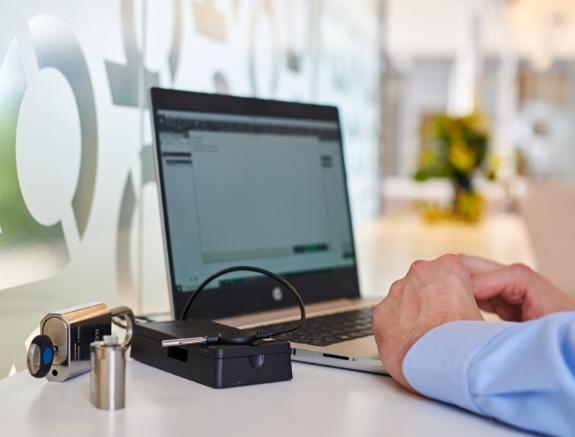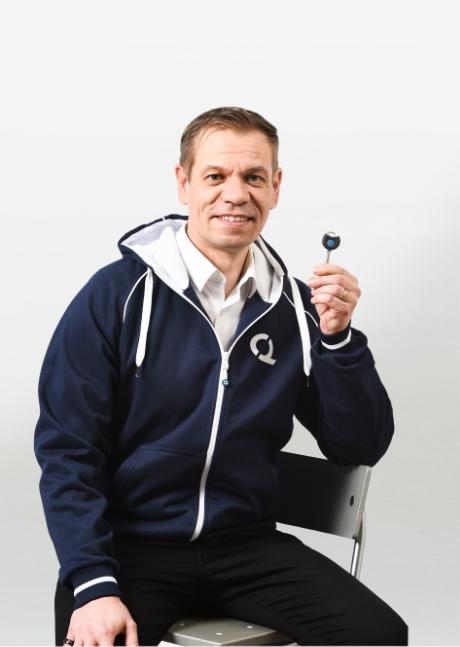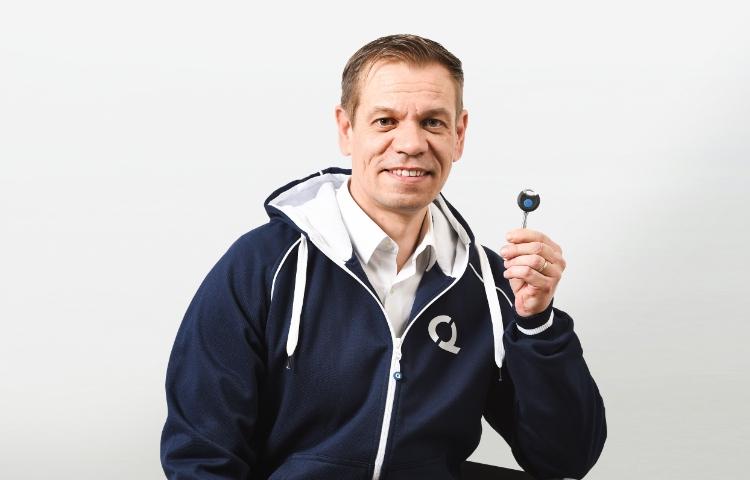Tomi Karjalainen
CPO, iLOQ
Developments in technology tend to sneak up on us. It is important to recognize the journey that has brought us to where we are today. In iLOQ’s case, we brought to market the world’s first self-powered digital access management solution in 2007. That is the same year that Apple brought out the very first iPhone. And just like the iPhone today, iLOQ’s solution, after many updates and developments is still the industry benchmark for digital access management.
Making mechanical obsolete
Similar to the mobile phones before the smartphone era, or CDs, typewriters or film cameras, we believe that mechanical locks and keys will become a thing of the past. While the mechanical lock and key market is only growing at a rate of 3%, the annual market growth for digital access management is at around 14% and growing. It can be clearly seen that mechanical solutions simply do not meet modern customer requirements in this increasingly digitalized world. Also, as the consumer mindset keeps on shifting from seeking out the lowest initial investment towards looking at total cost of ownership (TCO), sustainability of technological solutions and the service provider’s attitude towards environmental responsibility, we are well positioned to lead the transition and digital revolution in the world of locks and keys.
Mechanical solutions simply do not meet modern customer requirements in this increasingly digitalized world.”
Certified digital performance
With the launch of the iLOQ S5 and iLOQ 5 Series as a platform in 2020, we started a new chapter in the story of digital access management. A lot has changed over time, but, at its core, the patented technology developed by iLOQ is still the heart of our newest products and solutions. Over the years, security requirements have become stricter, and thus security levels have increased. The new 5 Series utilizes AES256-level encryption with mutual authentication to ensure data security. iLOQ was also the first access management company to introduce cloud-based solutions that are not dependent on vulnerable local networks and servers. To further ensure peace of mind for our customers and the best possible protection, our solutions are ISO 27001 certified and we use extensive external testing to verify the cyber security of our solutions.
Everything is connected
The Internet of Things (IoT) and device-to-device communications are the future of all digital solutions. We believe that the same applies to access management. We have invested heavily into the development of a platform that not only enables internal communication between devices such as locks, keys, door readers and NFC-enabled mobile devices, but also seamless integration with other external systems. A great example of this is our cooperation with KONE. Integration and data sharing now allow their elevators to react to people entering a space with our key, to optimize people flow in busy public and private buildings. Not only will the elevator know to come and pick you up, but, based on your access rights, it will even know which floor you are going to.

We have invested into the development of a platform that enables internal communications between devices and integration with external systems.”
The human experience
And just as the smartphone is a great analogy for technological development in general, we also see it being an integral part of access management and our everyday lives in the future. This is why we are developing apps for our key users and other aspects related to easy connectivity and access to the spaces where life happens. We believe that ensuring an intuitive and fluent access management solution is the only way forward. And, as we will continue to push the access management industry forward, we will do so the same way we have always done it – with sustainability in mind. Whether we are talking about self-powered or NFC-powered digital solutions, sustainability and environmental performance will always continue to be a key driver for our R&D. Using digital iLOQ technology as a part of your life should always be a positive human experience.

Using digital iLOQ technology as a part of your life should always be a positive human experience.”

